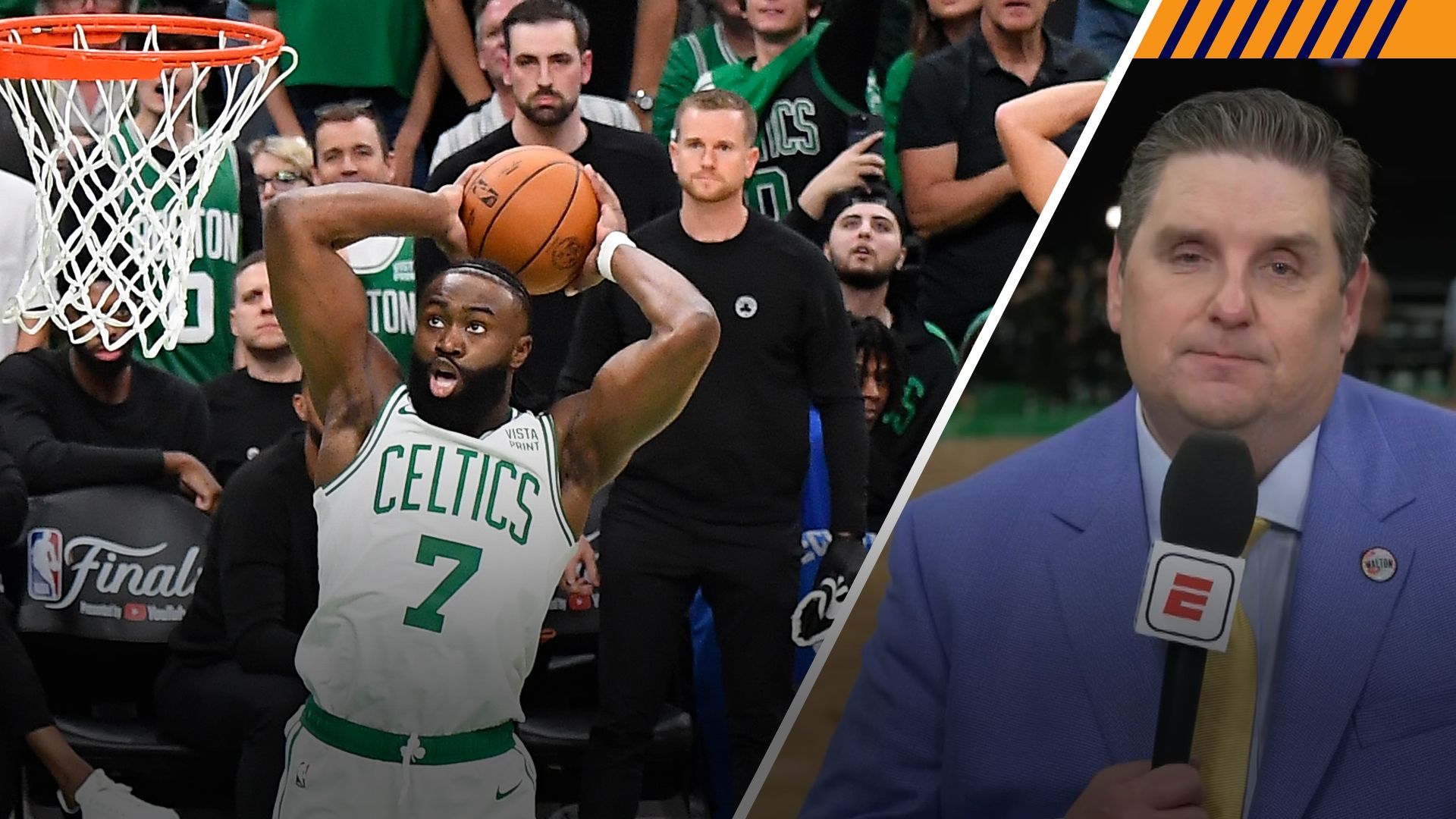BOSTON — Forty years ago, the Boston Celtics lost Game 1 of the 1984 Finals to the Los Angeles Lakers at the old Boston Garden, roughly 100 yards away from, and about three stories below, where the franchise won Game 1 of the 2024 Finals at TD Garden on Thursday.
Hollywood recently told the story of that epic seven-game series, complete with the Lakers running directly from the floor to the bus in their uniforms after that particular win to escape the rowdy Boston fans. But not everything from “Winning Time” was based on true events. The Lakers didn’t actually run out of the arena. In fact, legendary Lakers coach Pat Riley even gave an interview before he left.
“No rebounds,” Riley said after the gritty 115-109 win, “no rings.”
The way today’s Celtics play might have mystified players of that generation. On Thursday night, the 2024 Celtics took more 3-pointers in the first half (27) than the 1984 Celtics took in the seven Finals games combined (24). The 1984 Finals were the series where Kevin McHale infamously clotheslined Kurt Rambis, and Larry Bird insulted his teammates by saying, “We played like sissies.”
A lot has changed over the decades, but some things don’t. Riley’s quote has become famous for a reason: It’s true. The Celtics ended up with 30 more rebounds in the 1984 Finals than the Lakers, and they won Game 7 in large part because they crushed L.A. on the boards by 19.
Or, as the more modern-day philosopher Kawhi Leonard once said, “Board man gets paid.”
Rebounding is a vital part of Boston’s modern-day dominance, even if it doesn’t get much credit. In Game 1, Boston outrebounded the Dallas Mavericks by 10 in the first quarter alone, helping build what proved to be an insurmountable 17-point lead.
The Celtics are the No. 1 rebounding team in the playoffs, grabbing almost 54% of available boards. During the regular season they were fifth in the league, getting 51.5%. There are a lot of reasons the Celtics are 13-2 in the playoffs; outrebounding their opponents by a total of 87 in those 15 games is a significant one.
“We’ve got to rebound, we’ve got to sprint back, we’ve got to play defense, pay attention to detail,” Celtics coach Joe Mazzulla said before the Game 1 win. “We have to execute, we have to crash. We’ve got to play hard … the things that will go into winning this series are no different than the things that we talked about in preseason: habits, mindset, details, execution.”
“No rebounds, no rings” is more succinct. But the point is the same, generations apart.
It might even be fitting for a team that seems to have been overlooked and underappreciated for most of the season that its old school approach to one of the game’s basic tenets barely registers, and that extends to its franchise player.
Jayson Tatum tends to draw criticism for his sometimes up-and-down playoff output. It is true that he has been known to have an untimely bad shooting game, to get a little passive in clutch moments and sometimes to get a little loose with the ball; in fact he had six turnovers in Game 1.
What doesn’t receive proper attention is how Tatum morphs into a rebounding demon in the postseason during his career. He has led the Celtics in rebounding over the past two regular seasons, averaging 8.4 per game in that span. This season his 8.1 rebounds per game tied for 25th best in the NBA. Good numbers, but nothing like what he has done in the playoffs.
Tatum has averaged 10-plus rebounds a game in each of his past six playoff series, and he’s off to a good start in these Finals, pulling down a game-high 11 in the Game 1 victory. In the playoffs, he’s seventh in rebounds per game at 10.4 and third in total boards, behind only Luka Doncic and Nikola Jokic.
That’s a vital part of Tatum’s job because the Celtics often assign him to the opponent’s center, keeping Kristaps Porzingis out of the main actions of their pick-and-roll defense and allowing the big man to focus on help defense.
“The guys I’m chasing or I admire like Larry Bird, he was one of the best rebounders in the NBA,” Tatum said in an interview with NBC Sports Boston this week. “It’s wanting to do it all. Joe [Mazzulla] always challenges me to dominate and it’s not about scoring 30 or 40 points, but my impact on the game.”
Rebounds are especially important for the Celtics because they go through cycles where they have turnover issues, which makes the boards a way they can wrestle back control of the possession game. They also fire up giant numbers of 3-pointers — 39.9 per game in the playoffs, by far the most in the NBA — leading to long rebounds that can compromise their defense, which is why Mazzulla stresses crashing the glass for everyone on the floor.
The Mavericks, in contrast, were a bottom-five team in rebounding percentage during the regular season, though they’ve been better in the playoffs. Largely because of Doncic’s relentless play and their improved center rotation with Dereck Lively II and Daniel Gafford, the Mavericks rank sixth among playoff teams in rebounding percentage.
But rebounding remains a Celtics strength and an area where Tatum, who has made a season-long effort to contribute in more ways than just scoring, has an edge. And they know it, even if it isn’t a talking point.
“The toughest team will win,” Mazzulla said. “The team that makes the most plays will win. The team that can execute the details at a high level will win.”

